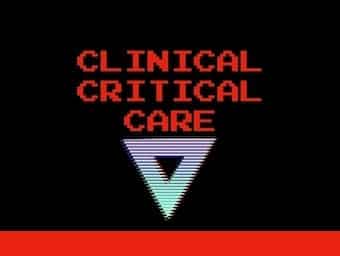
Levetiracetam
Levetiracetam (keppra) is a drug used as an anticonvulsant as monotherapy, or an adjunct, and as a Tier 2 agent in status epilepticus.

Levetiracetam (keppra) is a drug used as an anticonvulsant as monotherapy, or an adjunct, and as a Tier 2 agent in status epilepticus.

What's next after RESCUEicp? -The results of this study may have been disappointing, but there are some questions about the trial itself which we review.

Evie Marcolini talks about an aspect of neurocritical care that we commonly wrestle with:...prognostication.

Concussions have gained lay person attention over the past several years, due to high profile media stories from military conflict and professional sports.Also known as "mild" TBI, concussion affects millions of patients worldwide

Des Gorman talks about outcomes and controversies following traumatic brain injury.

Measuring patient outcomes is at the core of prognostication and research in neurocritical care, but there is increasing concern that the way we define and measure outcomes is failing to capture the patients experience.

The rehabilitation of people who have cognitive impairment after TBI should be based on an understanding of what is the likely cause of that impairment. Des Gorman

Reviewed and revised Chris Nickson and Sarah Yong STEROIDS AND TBI Roberts I, Yates D, Sandercock P, et al: CRASH trial collaborators: Effect of intravenous corticosteroids on death within 14 days in 10008 adults with clinically significant head injury (MRC…

Paediatric Traumatic Brain Injury Priorities: precise assessment of brain injury + associated injury; protection against secondary brain injury; management of ICP

A 'volume-targeted' approach to the management of TBI developed by a Swedish group (not ABBA), based on physiological volume regulation of the intracranial compartments. The Lund concept contradicts the prevailing strategem of titrating CPP to match ICP in TBI

Temperature and TBI. Induced hypothermia has been used for years to reduced cerebral metabolic rate; manipulation of temperature has been shown to effect certain types of brain injury (therapeutic hypothermia in out-of-hospital cardiac arrest).

polyuria following TBI is common; multiple causes, some of which imply a poor prognosis. Goal is to identify and treat the cause and any complications